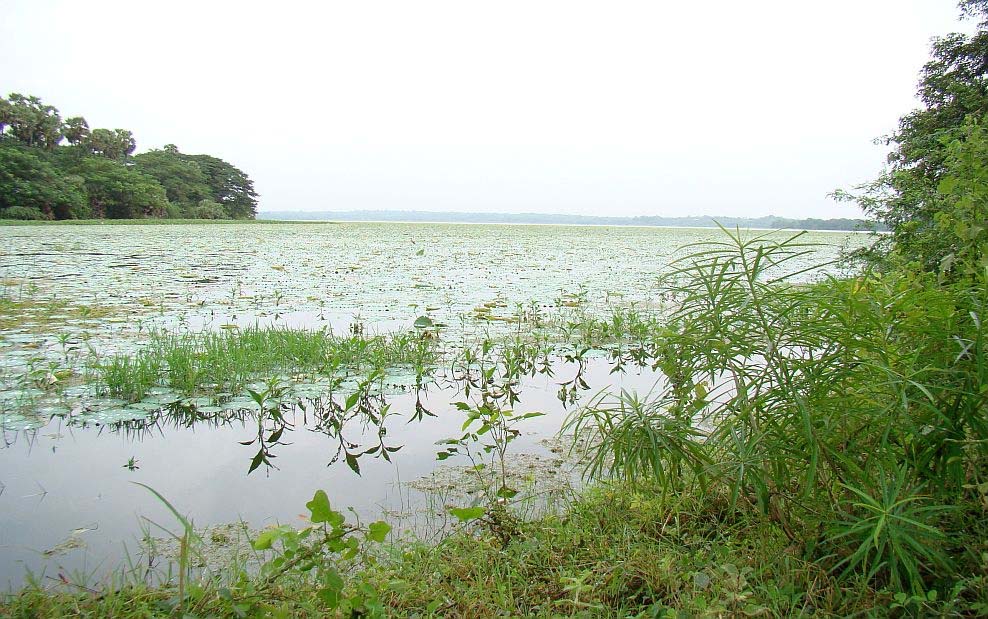 This Comprehensive Management Action Plan by the Salim Ali Centre for Ornithology and Natural History (SACON) deals with the various conservation and management interventions that can be taken up for long-term sustainability of Ousteri lake, the largest lake in Puducherry.
This Comprehensive Management Action Plan by the Salim Ali Centre for Ornithology and Natural History (SACON) deals with the various conservation and management interventions that can be taken up for long-term sustainability of Ousteri lake, the largest lake in Puducherry.
Wetlands in urban areas have always been exploited for several purposes due to anthropogenic activities. However, such activities may lead to alteration of wetland characteristics and thus cause changes in species composition and density. The Ousteri Lake (Oussudu Eri in Tamil) is rich in flora and fauna and is known to provide several ecological services including recharging underground aquifers and providing several livelihood options for the local community.
During 2008, Ousteri wetland was declared as a bird sanctuary and is home to hundreds of bird species including several migratory ones, which flock here in large numbers during migratory seasons. The sanctuary is also known for a wide variety of fish, mussels and crabs.
However, recently the lake and its surroundings are facing threats and pressures from several anthropogenic activities (encroachment, poaching and pollution) including rapid urbanization and infrastructure development in the immediate vicinity of the lake.
The major objectives of the present study were to -
- Assess the state of environment in and around the Ousteri Lake;
- Examine the probable threats to the lake and its ecological environs, and;
- Develop a Comprehensive Management Action Plan for conservation of the lake and its surroundings.
Ousteri Lake has been facing serious threats from multiple fronts such as reclamation, agriculture, siltation, weed invasion and poaching. The lake is infested by the aquatic weed Ipomoea carnea (Water hyacinth), which covers almost 14 per cent of the water spread area of the lake.
Encroachments in the form of rice paddies, land reclamation and plantations are on the rise. Runoff from agricultural fields can add substantial amounts of nitrates and phosphate to the lake waters thereby stimulating the growth of aquatic macrophytes and planktons, resulting in eutrophication. The ecologically sensitive zones such as roosting areas of birds are located in close proximity of humans. Illegal fishing and poaching of wild birds are quite frequent in the area.
These trends if not checked can soon result in rapid eutrophication, siltation, and ultimate death of the lake. The activities associated with agriculture and urban land use have brought about dramatic ecological changes affecting the quality of Ousteri watershed in terms of direct destruction of natural habitat types, increased nutrient input to the watercourses and the lake through increased erosion, agriculture run-off and waste disposal and increased natural resource utilization such as gravel extraction, firewood harvest and fisheries.
The Comprehensive Management Action Plan identifies the following issues that need to be addressed at the earliest for the conservation of Ousteri and its environment -
- Unsustainable fishing
- Hunting of birds
- Dumping of solid wastes on the lake embankments
- Vehicular movement, noise and other pollution
- Wastewater discharge
- Agrochemicals
- Weed infestation
- Soil erosion and siltation
- Tourism activities
Download the report here -